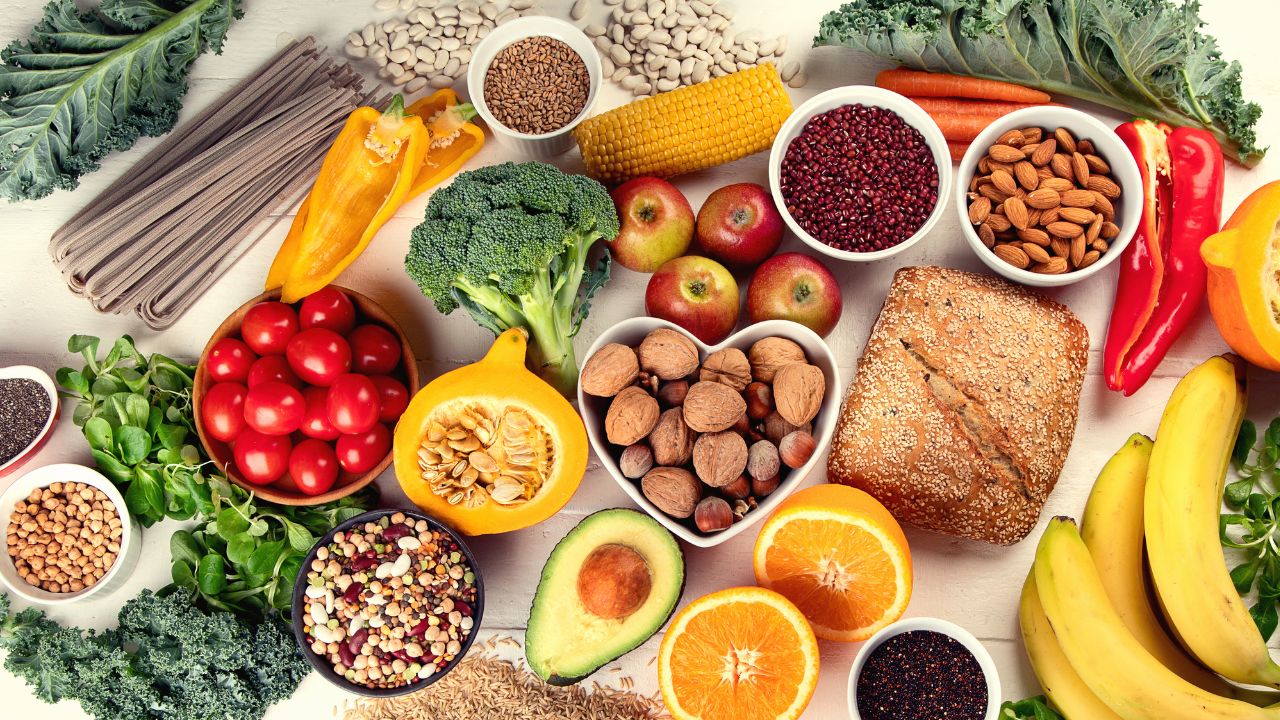Fiber & Gut Health
Feb 20, 2023
Fiber has been used to help improve digestion for years! In ancient Greece, people ate bran cereals to help prevent constipation. J.H. Kellogg confirmed positive effects from wheat bran in patients who were suffering from colitis and constipation in the 1930s. After that, fiber, also known as roughage or crude fiber at the time, was explored to see if it could benefit other areas of the body, such as pregnancy, heart disease and colorectal cancer. In 1953, Eban Hipsley, a British physician, was the first to define the term dietary fiber (source).
What is Fiber?
Fiber is a type of carbohydrate that passes through the gastrointestinal tract undigested. Though most carbohydrates are broken down into sugar molecules called glucose, fiber is not. It’s found in plant material from fruits, vegetables, legumes, nuts and grains. Fiber’s primary job is to ensure your digestive system is working by preventing leaky gut, regulating bowel movements and maintaining colon health.
Fiber & Disease Prevention
Fiber not only supports good digestive health, but it also assists other bodily functions.
High-fiber diets have been shown to lower the risk of developing:
- Heart disease by lowering cholesterol and blood pressure, and keeping you feeling full to maintain a healthy weight.
- Diabetes by balancing blood sugar levels.
- Diverticular disease by maintaining regular bowel movements, which reduces the risk of hemorrhoids and diverticula.
Additionally, because of its beneficial role in your gut microbiome, fiber can help your body recover from chronic inflammation caused by these conditions.
Types of Fiber
There are two types of dietary fiber—soluble and insoluble. Although both types of specific health benefits, both are essential for digestion and your overall health.
Soluble fiber
Soluble fiber dissolves in water and transforms into a gel, which slows the transportation of food to your intestines during digestion. This form of fiber is extremely helpful for those who experience regular diarrhea. It also helps lower glucose and cholesterol levels.
You can find soluble fiber in foods such as:
- Oatmeal
- Chia seeds
- Nuts
- Beans
- Lentils
- Apples
- Blueberries
There are also functional fiber products manufactured to be sold at your local health/grocery or added to foods and supplements. These products are created by extracting and modifying natural plants. Examples include:
- Psyllium: A sticky, nonfermentable fiber extracted from psyllium seeds. It holds onto water, softens and bulks stools, has a laxative effect, and may help normalize blood sugar and cholesterol. You can access it over the counter on its own. Standard consumption is through a glass of water, but you can add it to your smoothies! Typically, you can find psyllium in high-fiber cereals, as well.
- Polydextrose and polyols: Soluble fibers made of glucose and sorbitol, a sugar alcohol. It is a food additive used as a sweetener, to improve texture, maintain moisture, or increase fiber content. It can increase stool bulk and has a mild laxative effect. Although, it does have minimal effects on blood sugar and cholesterol levels.
- Inulin, oligosaccharides, pectins, resistant starch, gums: Derived from plant foods, but are isolated or modified into a concentrated form that is added to foods or fiber supplements.
Insoluble fiber
While soluble fiber dissolves in water, insoluble fiber does not. This type of fiber absorbs fluids and sticks to other food materials to push food through your digestive system easier and form stools. Digesting insoluble fiber results in softer, bulkier stools and regular bowel movements— say goodbye to constipation!
Food sources of insoluble fiber include:
- Wheat bran and other wheat products
- Quinoa
- Brown Rice
- Legumes
- Leafy greens such as kale and arugula
- Almonds & walnuts
- Seeds
- Fruits with edible skins like pears, plums and apples
How Much Fiber Do You Need?
Children and adults need 25 to 35 grams (minimum) of fiber per day but unfortunately, most Americans are only getting about 15 grams daily. Work with a trusted practitioner to help you navigate fiber and boost your daily intake!
Interested in Exploring How Fiber Can Help You?
DON’T MISS THIS!
START YOUR PATH TO BETTER HEALTH
Take our free Gut Health Assessment today and discover personalized steps to improve your digestion and well-being. Don’t wait—unlock the key to a healthier you now!


